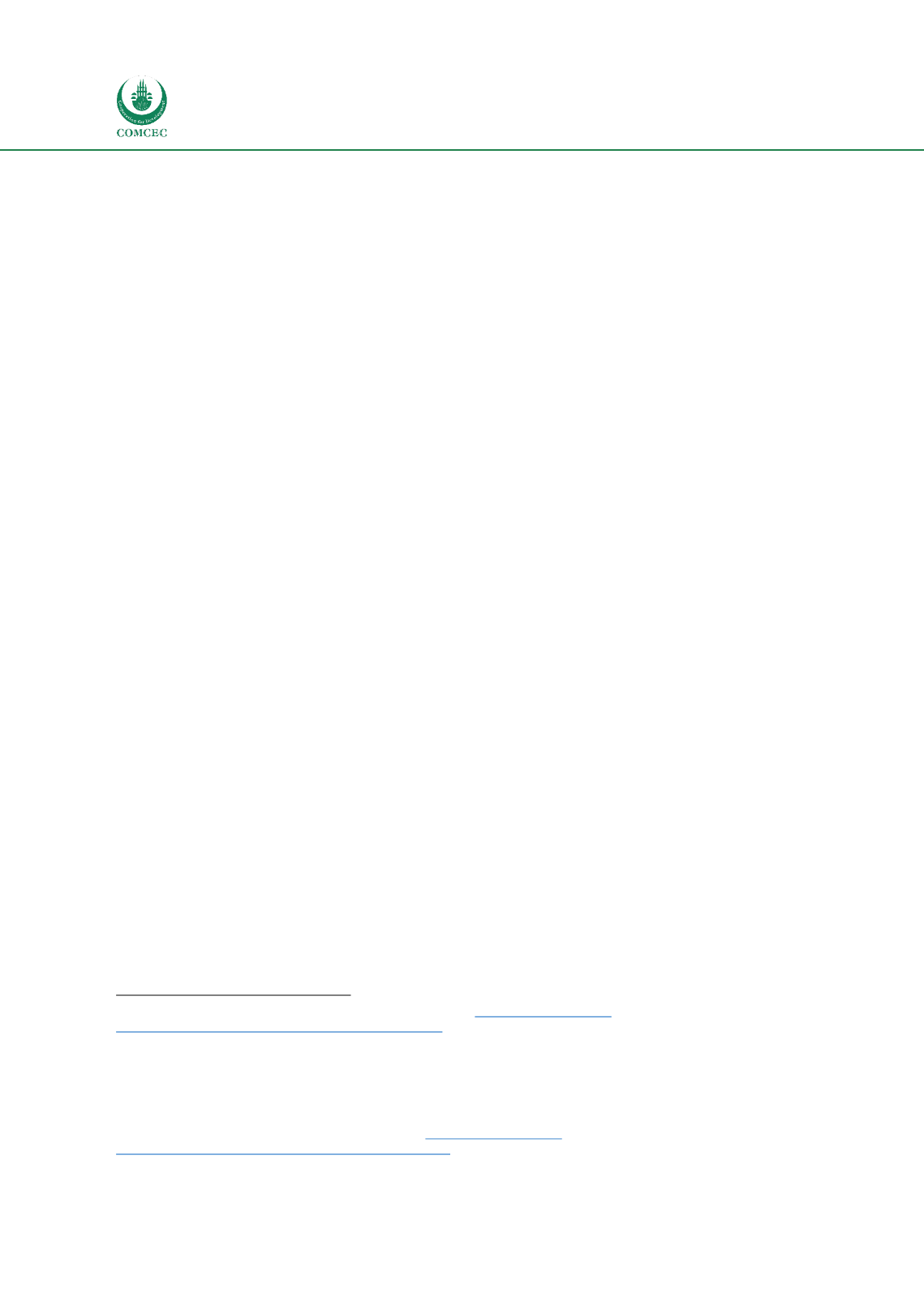

Improving Agricultural Market Performance
:
Creation and Development of Market Institutions
132
capacity of the domestic rubber manufacturing industry and processing facilities is limited.
356
The same is true for tea as well as the cocoa and coffee sub-sectors, where raw beans are the
major export product as opposed to processed cocoa and coffee beans.
Foreign investment in value-addition and agro-processing remains limited due land
ownership, which is largely restricted for foreign investors, and Indonesia’s negative list for
foreign investment. Improving the business climate requires to revise this negative list and
make it more open for foreign investors through partnerships with local enterprises. As of
now, agricultural investment projects of less than 25 hectares are only restricted to domestic
investors while the foreign ownership of projects exceeding 25 hectares is restricted to
30%.
357
This together undermines the global competitiveness of Indonesia’s agricultural sub-
sectors.
The Ministry of Agriculture guides farmers to implement post-harvest technologies (e.g.
fermented cocoa and dried pepper) and provides processing and packaging units and
technologies to improve product quality, value-addition, and market access.
358
However,
selling at a later stage requires a change of farmers’ mindset. Many small-scale farmers and
smallholders are reluctant to engage in marketing activities and processing activities, which
has resulted in the fact many farmers still rely on the commodity prices as determined by
traders, middlemen, and intermediaries.
359
These traders are currently not registered with the Ministry of Trade
360
though regulation is
currently designed, which will require intermediaries, traders, and distributors to be
registered online with the Ministry of Trade, after which they will be licensed.
361
This online
system, INATRADE, should enable the Ministry of Trade to improve market surveillance,
product traceability and monitoring of agricultural products and market participants.
Producers should register their middlemen and intermediaries, while importers need to
register their domestic distributors. In the future, the system should be integrated with other
Ministries’ systems (e.g. Ministry of Finance, Ministry of Economy Affairs, and COFTRA) to
ensure compliance with money laundering regulation and trace tax evasion practices. Such an
integrated system would also enable Indonesia’s agricultural market institutions to specifically
target farmers or areas not meeting export requirements in terms of standardization, food
safety, and SPS.
On the other side, however, some progress had been made in the palm oil industry as large
domestic enterprises have invested considerably in processing and refining capacity in
addition to state-owned economic enterprises. This has been supported by the Government of
Indonesia, which has reduced the export levy on refined palm oil products but retained the
export levy on CPO in order to stimulate increased revenue streams from Indonesia’s natural
resources through refinery and value-addition processing activities.
362
This export levy on CPO
356
Indonesia Investments (2017), Rubber (Natural), available a
t https://www.indonesia- investments.com/business/commodities/rubber/item185 [Accessed June 2017].
357
Interview conducted with BKPM in Jakarta, July 14, 2017
358
Interview conducted with Ministry of Agriculture in Jakarta, July 13, 2017
359
Anindita, R., Baladina, N., & Setiawan, B. (2013), “Effect of Marketing Efficiency Improvement in Indonesia,”
Russian
Journal of Agricultural and Socio-Economic Sciences
, 7(19), pp. 5-6.
360
Interview conducted with Ministry of Agriculture in Jakarta, July 13, 2017
361
Ibid
362
Indonesia Investments (2017), Palm Oil, available a
t https://www.indonesia- investments.com/business/commodities/palm-oil/item166 [Accessed June 2017].


















